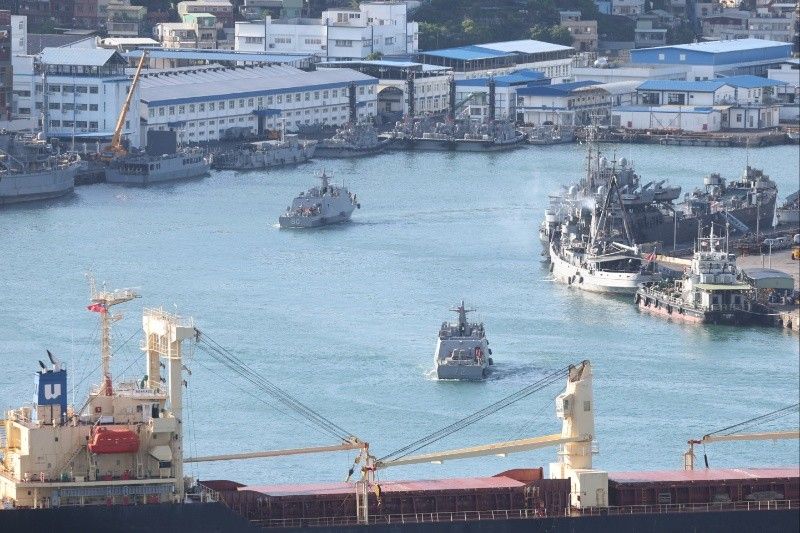
Upgrade to High-Speed Internet for only ₱1499/month!
Enjoy up to 100 Mbps fiber broadband, perfect for browsing, streaming, and gaming.
Visit Suniway.ph to learn
Jean Mangaluz - Philstar.com
April 3, 2025 | 2:54pm
Former US President and Republican presidential candidate Donald Trump gestures as he speaks during a campaign rally at Van Andel Arena in Grand Rapids, Michigan on Nov. 5, 2024.
AFP / Kamil Krzaczynski
MANILA, Philippines — The United States, under President Donald Trump, has imposed a 17% tariff on Philippine exports as part of its sweeping “Liberation Day” trade policy targeting over 180 countries.
The new tariffs, announced on April 2 via Trump’s Truth Social account, will take effect on April 9.
The Philippines joins other countries, such as Singapore and Israel, in facing new reciprocal tariffs.
While the Philippines’ rate is set at 17%, neighboring Southeast Asian nations face significantly higher tariffs: Vietnam at 46%, Thailand at 36%, Indonesia at 32%, and Malaysia at 24%. Singapore is on the lower end of the tariff table, with 10%.
China was imposed a 34% reciprocal tariff, while the European Union will deal with 20%.
Trump justified the tariffs as a response to trade imbalances, citing the need to protect American workers and industries. "Large and persistent annual U.S. goods trade deficits have led to the hollowing out of our manufacturing base," he said, invoking his authority under the International Emergency Economic Powers Act of 1977.
Philippines' response. Despite the new tariffs, Malacañang downplayed their potential economic impact. Palace Press Officer Claire Castro, citing the Department of Trade and Industry (DTI), said the country’s exports to the US are not substantial enough to cause significant burden.
“We will accept this; whatever the impact will be, of course we will respond accordingly. But as of the moment, its impact is very minimal,” Castro said in Filipino at a Palace briefing.
Castro said the Philippines would not intervene in decisions the US government makes on its own economy. She noted, however, that higher tariffs imposed on other countries might make the Philippines an attractive alternative for investors seeking to avoid steeper levies elsewhere.
Trade relations. The US remains a key trading partner for the Philippines, accounting for $12.1 billion in exports in 2024—16.6% of total Philippine export sales.
Imports from the US totaled $8.2 billion during the same period, resulting in a $3.9-billion trade surplus for Manila.
Trade Secretary Cristina Roque previously expressed confidence that bilateral relations would remain stable despite Trump’s tariff policies. “Our trade deficit with them is very minimal, so it is not something that we should worry about for now,” Roque said last month.
While officials project minimal immediate effects from the tariffs, analysts warn that they could disrupt supply chains and increase costs for exporters over time.
The Philippines may also face pressure to negotiate trade concessions or explore free trade agreements with the US to mitigate future risks.

 20 hours ago
1
20 hours ago
1



